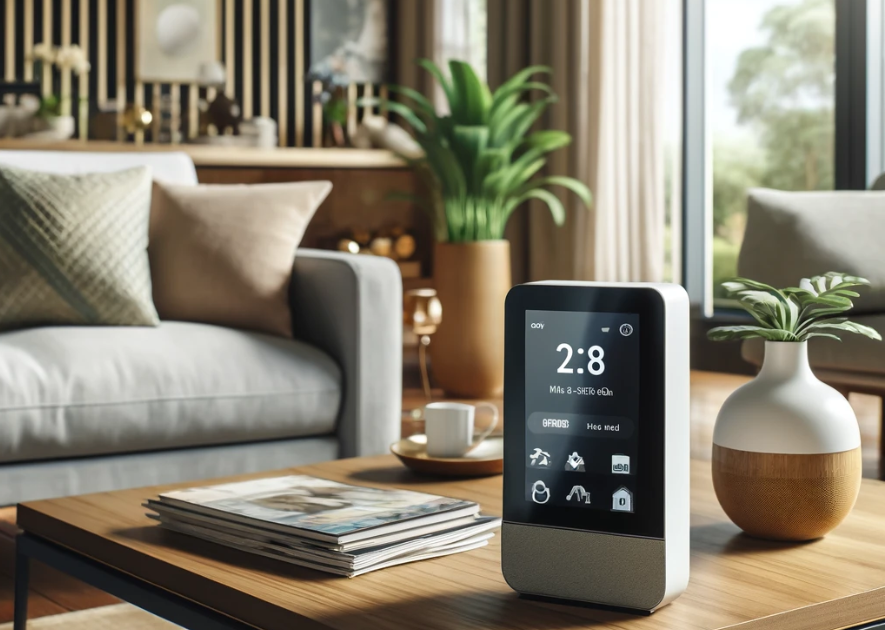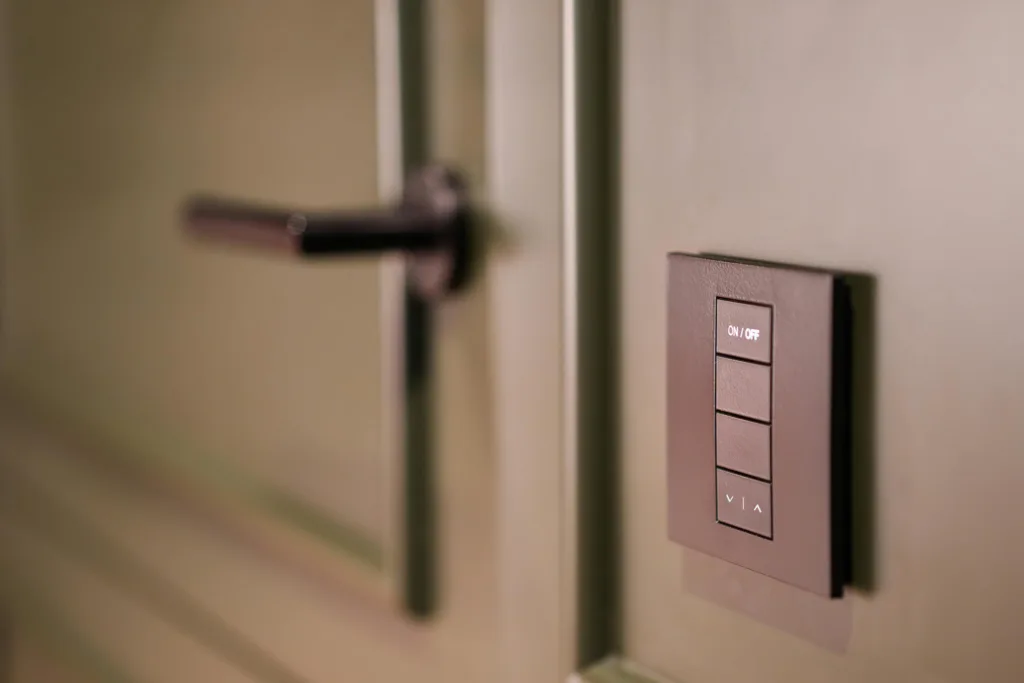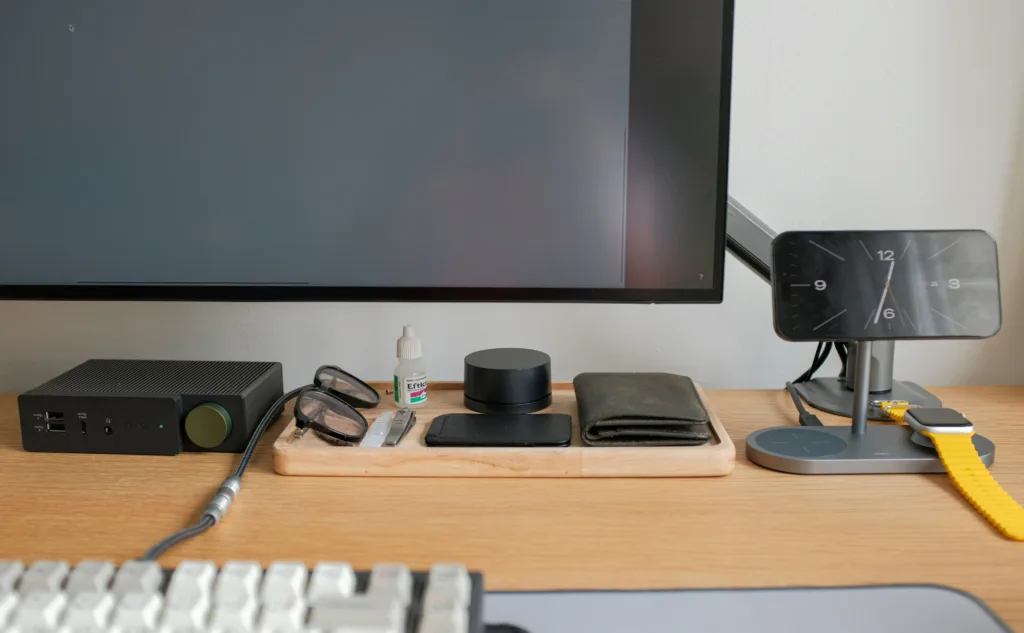
According to Statista the smart home market is expected to increase from 2023 to 2028 , growing by a total of 424.5 million users. That means 117.69% rise! There is no wonder why these gadgets are becoming more and more popular.
Smart home hubs are the brains of your connected home, allowing you to control all your devices from one central location. But there are so many options that choosing the right for you can be really overwhelming. We’ve analyzed all the devices available and defined the best smart home hubs of 2024. This comprehensive guide will definitely help you find suitable variants. Let’s explore!
1. Amazon Echo (4th Gen)
Pros:
- Great sound quality
- Wide range of features
- Affordable price
- Works with a wide range of devices
- Alexa voice assistant
- Zigbee and Bluetooth connectivity
Cons:
- Privacy concerns
- Can be a bit slow at times
The Amazon Echo (4th Gen) integrates easily with a variety of devices, thanks to its support for Zigbee and Bluetooth. Alexa, Amazon’s voice assistant, offers robust capabilities, allowing you to control your home with voice commands. It’s affordable, making it a great entry point into smart home automation, but you won’t sacrifice quality or functionality. This all makes the Amazon Echo generation 4 a great choice for most users.
The Amazon Echo (5th Gen) is also a great option. It is a budget-friendly smart speaker with a sleek design and improved sound. It’s great for voice control, music streaming, and controlling your smart home. It’s affordable and easy to use, but it lacks the high-end features and sound quality of more expensive models. You might want to consider it if you’re looking for a basic smart speaker for everyday use, but it’s not the best choice for audiophiles or those needing advanced features.
2. Aeotec Smart Home Hub
Pros:
- Powerful and versatile
- Works with a wide range of Z-Wave devices
- Local processing for faster response times
- Open-source platform
Cons:
- Can be complex to set up
- No built-in voice assistant
For those looking for a powerful and versatile hub, the Aeotec Smart Home Hub is an excellent variant for sure! Running on the SmartThings platform, it supports a wide range of Z-Wave and Zigbee devices, allowing for extensive customization and control. Its local processing capability ensures faster response times and improved reliability. But consider if you are a beginner it may be a bit complex to set up.
3. Amazon Echo Dot
Pros:
- Affordable price
- Compact design
- Good sound quality for its size
- Works with a wide range of devices
- Alexa voice assistant
- Bluetooth connectivity
Cons:
- Not as powerful as the Echo (4th Gen)
- Shorter cable
The Amazon Echo Dot is a fantastic budget option! It offers many of the same features as its larger counterpart but at a lower price. It’s ideal for smaller spaces or if you’re just starting with smart home technology. While it doesn’t have all the power and features of the Echo (4th Gen), it still supports a wide range of devices and includes the Alexa voice assistant for easy control.
4. Apple HomePod 2
Pros:
- Excellent integration with Apple ecosystem
- High-quality audio
- Supports Matter
- Built-in temperature and humidity sensors
Cons:
- Expensive
- Limited to Apple HomeKit-compatible devices
If you are invested in the Apple ecosystem, the Apple HomePod 2 will be a great fit. It integrates seamlessly with Apple devices and HomeKit and provides high-quality audio and smart home control. The HomePod 2 supports the new Matter standard, ensures future compatibility with a broader range of devices. Its built-in sensors can also enhance your home automation setups.
5. Google Nest Hub Max
Pros:
- Large display
- Excellent for video calls and streaming
- Google Assistant integration
- Supports Thread and Matter
Cons:
- Limited compatibility compared to Alexa
- No Zigbee or Z-Wave support
For Google users there is the Google Nest Hub Max. It offers a large display for video calls, streaming, and obviously smart home control. Google Assistant provides robust voice control capabilities, and the hub supports the Thread and Matter standards for future-proofing your smart home. However, it lacks Zigbee and Z-Wave support, which may limit device compatibility.
6. Hubitat Elevation
Pros:
- Powerful automation capabilities
- Local control for increased reliability
- Supports Zigbee and Z-Wave devices
- Advanced customization options
Cons:
- Steep learning curve
- Requires more technical knowledge to set up
For those who want granular control over their smart home, the Hubitat Elevation is the best choice. This hub supports both Zigbee and Z-Wave devices, but its advanced features come with a steep learning curve, making it better suited for tech-savvy users. It offers powerful automation capabilities and local control, making it highly reliable and fast.
7. Apple HomePod Mini
Pros:
- Affordable for an Apple device
- Good audio quality
- Supports Matter and Thread
- Compact design
Cons:
- Limited child controls
- No physical microphone button
The Apple HomePod Mini is a great budget option for those in the Apple ecosystem. Despite its small size and affordable price. It’s a compact, stylish addition to any home, though it has limited child controls and no physical microphone button. It offers good audio quality and supports both Matter and Thread, ensuring compatibility with a wide range of devices.
8. Amazon Echo Show 10 (3rd Gen)
Pros:
- Rotating display for better video calls
- Excellent audio quality
- Zigbee built-in
- Alexa voice assistant
Cons:
- Large and bulky
- Expensive
The Amazon Echo Show 10 (3rd Gen) is perfect for those who want a smart display with robust smart home hub capabilities. Its rotating display ensures you’re always in the frame during video calls, and it offers excellent audio quality. With built-in Zigbee and Alexa, it’s a powerful hub for controlling your smart home, although it’s bulkier and more expensive than other options.
9. Apple TV 4K (2022)
Pros:
- Great for streaming 4K HDR content
- Acts as a HomeKit hub
- Supports Matter and Thread
- Ethernet port for reliable connection
Cons:
- Expensive
- Limited compatibility with non-HomeKit devices
The Apple TV 4K (2022) s a versatile device that serves as both a streaming box and a HomeKit hub. It supports Matter and Thread, ensuring broad compatibility with future devices. The Ethernet port offers a reliable connection, and its 4K HDR capabilities make it a fantastic streaming device. It’s a bit pricey, but its dual functionality justifies the cost for Apple users.
10. Google Pixel Tablet
Pros:
- Dual functionality as a tablet and home hub
- High-resolution display
- Google Assistant integration
- Versatile and portable
Cons:
- Expensive
- Limited third-party app support compared to dedicated hubs
The Google Pixel Tablet stands out by offering both tablet and home hub functionality. It’s powered by Google Assistant and integrates seamlessly with other Google services, making it versatile and portable. Its high-resolution display and powerful performance make it a great choice for those looking for a multi-functional device, though it comes at a higher price point.
Conclusion
Choosing the right smart home hub depends on your individual needs, preferences, and existing ecosystem. The Amazon Echo (4th Gen) stands out as the best overall option due to its wide compatibility and feature set. However, specific needs might make other hubs more suitable, such as the Aeotec Smart Home Hub for those using SmartThings or the Apple HomePod 2 for Apple enthusiasts. By considering your requirements and budget, you can find the perfect smart home hub to make your life easier and more connected in 2024.
Read more about Smart Homes:





